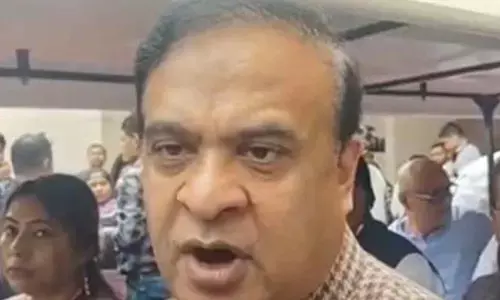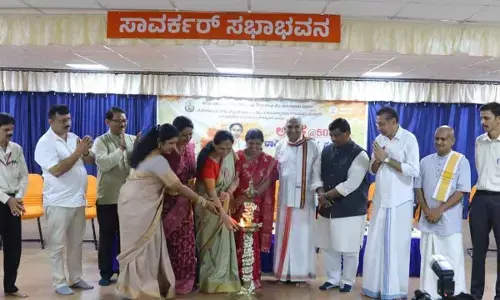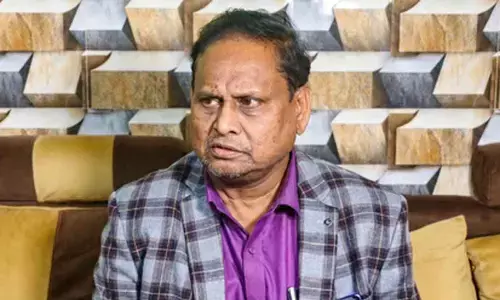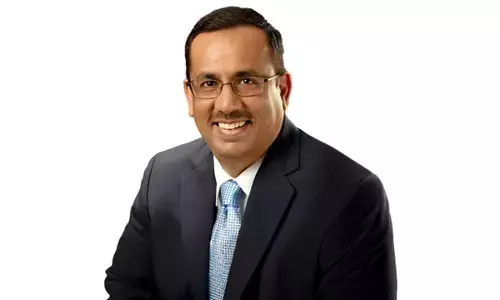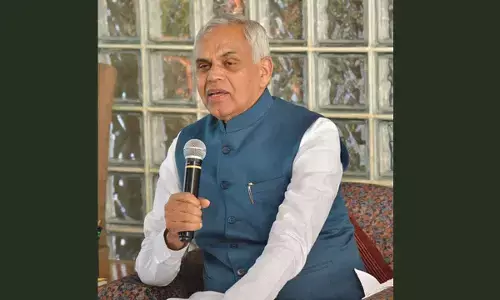Sovereign public shall know about wilful defaulters
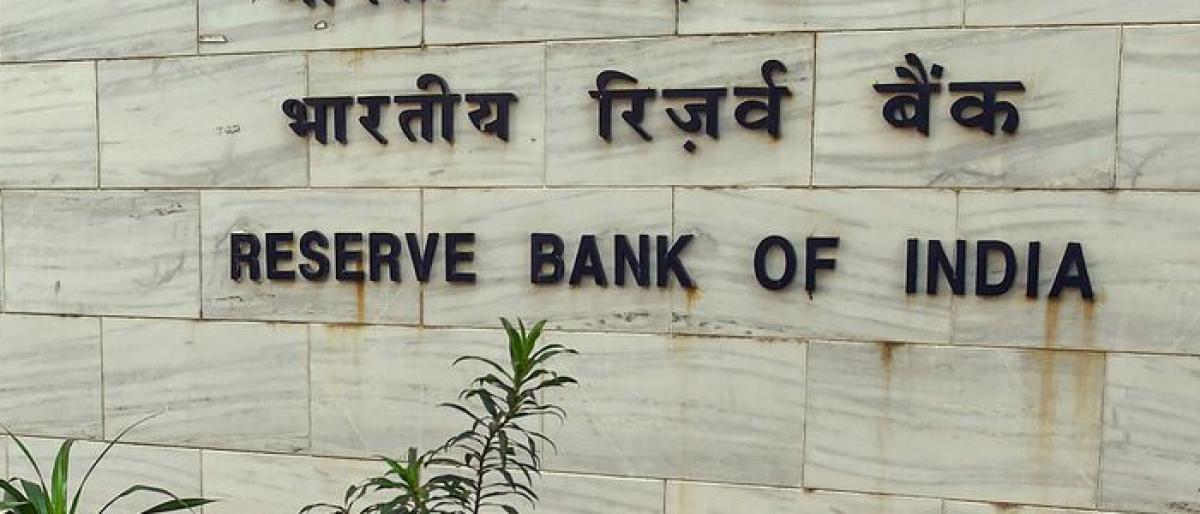
The CPIO, Prime Ministers Office PMO, stated that as RTI application was not filed before the PMO, first and second appeals were also not filed before it, the order of CIC directing the PMO to provide action related information on former RBI Governor is not tenable
The CPIO, Prime Minister’s Office (PMO), stated that as RTI application was not filed before the PMO, first and second appeals were also not filed before it, the order of CIC directing the PMO to provide action related information on former RBI Governor is not tenable. “...No notice or other documents relating to this case have been received in the PMO from the CIC also. Further, as per the RTI Act, 2005, the First Appeal and subsequent Second Appeal under Section 19 of the RTI Act can be filed by a person, "...who does not receive a decision (on his RTI application) within the time specified... or is aggrieved by a decision of the Central Public information Officer...'
The Commission cannot agree with this kind of attempt to deny the substantive part of information access by unreasonable procedural interpretations without any legal basis. There is no provision in the RTI Act that prevents the Information Commission from directing any public authority to provide information if that is possibly available with them. While hearing a second appeal, the Commission can direct another public authority or another wing of government to provide information which was not hit by any exception. Section 19(8) of the RTI Act, gives general power to Information Commission saying ‘it has ...power to (a) require the public authority to take any such steps as may be necessary to secure compliance with the provisions of this Act, including … (steps listed in (i) to (vi) clauses).
While Section 19(1) to 19(10) lay down procedures for hearing the first and second appeals, sub section (8) of Section 19 explains the general power of CIC to implement the RTI Act. The stand taken by the PMO that order of IC as not maintainable is not in tune with the letter and spirit of Right to Information Act. It appears that the PMO is under an impression that the citizen is a disputant/litigant, his information request is litigation and CIC is a court of law. The RTI Act is a welfare legislation aiming at good governance. It is not a rigid procedural law like Civil Procedure Code or Criminal Procedure Code, which need to be strictly followed in courts, and cannot be insisted upon for seeking information under the RTI Act. The public authority is not an adversary to the citizen seeking information. The Hon’ble Supreme Court has emphatically said in Union of India v Namitha Sarma (https://indiankanoon.org/doc/ 47938967/):
While deciding whether a citizen should or should not get a particular information “which is held by or under the control of any public authority”, the Information Commission does not decide a dispute between two or more parties concerning their legal rights other than their right to get information in possession of a public authority. This function obviously is not a judicial function, but an administrative function conferred by the Act on the Information Commissions.
Hence, the PMO should not consider the RTI requestors as litigants or disputants, and that their office as an adversary to those requestors. As a public servant in a representative government, the PMO has a duty to report to the sovereign, i.e., the members of the public. The RTI Act provided that even the CPIO can transfer the RTI request to other public authority for furnishing information. The CPIO of the PMO transfers many RTI requests to other public authorities in routine. They cannot say that the IC cannot ask the other public authority to furnish information. This is wholly untenable contention.
Even on the facts of this case, it is the legal duty of the PMO to furnish the information as per the directive of CIC, because: (a) The RTI was formally filed for information from a Ministry of Government of India, which is led by the PMO. The Commission hopes that the PMO will understand that entire Union government is one single public authority, from which, the Ministry of Labour and the PMO are not different, and that they divide powers only for administrative convenience. (b) The substantial subject of the RTI was earlier adjudicated at all levels such as the PIO, First Appeal, Second Appeal, Writ Petition at HC and also at the Supreme Court, wherein all the contentions of the RBI against disclosure of details of loan defaulters, willful defaulters including fraudulent loans, and action taken for recovery of bad loans, were rejected and the Supreme Court directed the RBI to furnish the information, which it did not. (c) The RTI request in this case also asks for same information, which is held to be disclosed under the RTI Act by the apex court that means declared law of the land as per Article 141. During the hearing of the second appeal, it was found by the Commission that information about defaulters is filed with the PMO by former RBI Governor Raghuram Rajan. (d) The CPIO of the RBI did not provide information obviously because of instructions of the higher authorities, which might include apex policy makers.
The identity of and action on loan defaulters is an issue of larger public interest, which every citizen of this country has a right to know. The stand taken by the PMO in this case will not serve any public interest, and compel the citizen to start his effort ab initio, by filing an RTI request with PMO, treating as a separate unconnected public authority and reach the ultimate level at CIC or up to the Supreme Court, if the government prefers to litigate with the citizen and ultimately it has to give that information.
The appeal before the CIC now is for information about list of defaulters and action against the defaulters, which the RBI is bound to give but not giving. It is claimed by its former Governor when he was Governor that he wrote to the PMO. That was stated before a Parliamentary Committee. It is in public domain. If the CIC comes to know that information is held by a particular authority, either from record before it or from public domain, it can ask such holder of information. The PMO did not say that it did not have such information.
Hence Commission assumes that PMO holds such information. If the letter of Sri Raghuram Rajan is acted upon, the PMO should have explained the same, if not acted upon, should have mentioned it, and if there is any objection based on any exception, the PMO should have pleaded such provision and justify their denial.
Instead, the PMO refused to comply with the direction of disclosure of action on letter of Raghuram Rajan, on grounds which are not legal. It’s unfortunate. It has moral, constitutional and political duty to tell the citizens of India as to who are and what action was taken against defaulters to recover the huge loans advanced to them by banks, from out of tax payer’s money. The Commission directs the officer of higher designation in the PMO to inform the appellant and Commission, (a) names and action taken on the defaulters for recovery of loans in response to the letter from Raghuram Rajan and (b) the policy, if any, about recovery from defaulters including high profile ones. (Based on the order of CIC on 16th November 2018)


